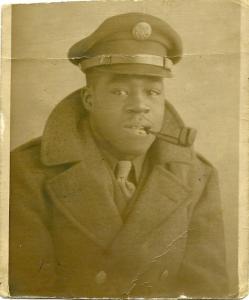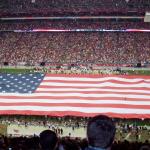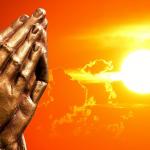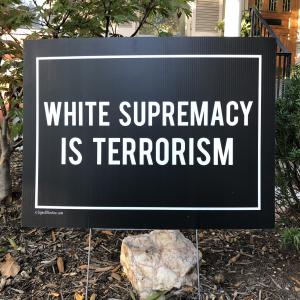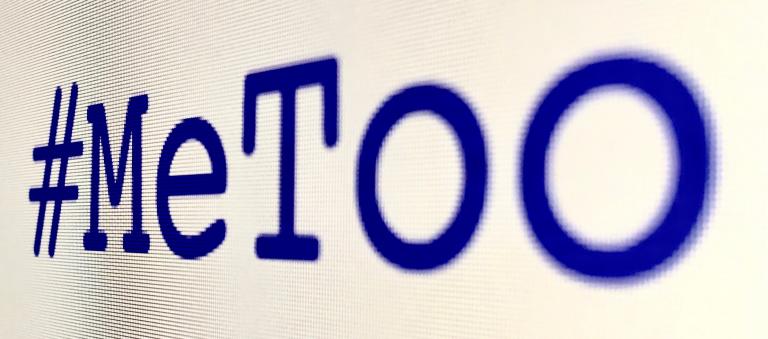by Jervette R. Ward
In the last ten days, I’ve been individually contacted by two older “white Christian friends” who wanted to inform me that they agreed with what I was saying about racism, discrimination, and inequality in our nation and our personal lives; however, one informed me that I was being too aggressive and making white people in our circles uncomfortable, and the other informed me that I wasn’t doing enough to address racial issues and that I should stand up stronger.
Now I direct you to the picture attached to this piece. The dapper gentleman pictured is my grandfather, Leon Ward, Sr., a veteran of World War II. Because of my history growing up in white private school Mississippi/South Carolina, white former classmates/associates/acquaintances occasionally reach out about “race issues.” Honestly, I’m getting a little worn out with the repetitive inbox conversations, so I wanted to share an updated version of one of those private messages about my grandfather.
When Colin Kaepernick began protesting police brutality and the lack of the full manifestation of rights as American citizens for Black people, many white people felt angry and uncomfortable. Initially, Kaepernick sat during the flag salute and national anthem at football games, yet after consulting with a veteran, he decided to kneel. It was his way of showing respect while still protesting. There’s a long history of kneeling protests throughout the Long Civil Rights Movement. Some white people have shielded their love of whiteness and their love of their own comfort by claiming that Kaepernick’s protest is anti-American, unpatriotic, and disrespectful to veterans and the military. James Baldwin famously said, “I love America more than any other country in this world, and, exactly for this reason, I insist on the right to criticize her perpetually.” Kaepernick has been channeling Baldwin and has publicly claimed his love and respect for his country, which is why he demands that this country live up to its claim of equality and justice for all. My now deceased grandfather, a Black man from the South returned to Memphis after serving in WWII and was treated as a second-class citizen. In the Jim Crow South, he was not able to fully participate and utilize the services that were provided to military veterans due to the color of his skin. He rode in the back of buses, and he drank from colored water fountains. He sent his children to segregated schools that were not fully funded, and he feared white violence if he ever stepped out of “his place.” He didn’t have access to The University of Memphis, his local college, due to the color of his skin. His wife, my grandmother, is still alive and her economic situation is a direct correlation to the discrimination and racism her breadwinner husband faced.
My grandfather, a veteran of this country, is why I #TakeAKnee and why #ImWithKap and why as a professor, I’m #TeachingOnOurKnees. Unjust policing, continued economic and racial oppression, and systemic inequality are all a part of our nation’s narrative, and the effects of the past are still manifested today. The demand that our nation fully embrace its professed ideals and provide access to all no matter their race, nationality, color, religion, sexuality, or creed is a patriotic stance. I am convinced that my veteran grandfather would join with many other veterans who have kneeled in solidarity with Kaepernick – #VeteransForKaepernick. Ironically, many white people direct current kneelers to the Rev. Dr. Martin Luther King, Jr. and his methods of peaceful protest. Sadly, most people during the Civil Rights Movement did not support King’s methods either. My dad, the son of my grandfather pictured, raised me to stand against inequality, injustice, and discrimination not just because it is right, but also because it is the full manifestation of what our faith calls us to as Christians.
One of the white people who contacted me this week suggested that I should be as meek as a lamb and gentle as a dove in a biblical sense so that I do not alienate the white people who are uncomfortable with having their racism and idolatry of country pointed out. I was told that my stance is divisive and doesn’t lead to unity. I respectfully push back and acknowledge my imperfect state of humanity while channeling the righteous anger of Jesus as he threw the moneychangers out of the temple. There is a time and place for dove and lamb-like behavior, and there is a time for holy anger. The sin of racism and the love of white supremacy in all of its various manifestations has for too long been embraced by white Christians and white society. I firmly believe that God is calling us to throw out this evil quickly, firmly, boldly, and directly. If white people are uncomfortable about protests, it is most likely that the discomfort is from having their sin pointed out. It is time to acknowledge that for many white Christians, their love of whiteness has been stronger than their love of Christ. People often get defensive and uncomfortable when they are forced to let go of something wrong that they hold dear, yet growth and development usually happen in uncomfortable spaces. Even though the movement #BlackLivesMatter has often been controversial for white Christians, Black lives should matter to white Christians, which is why Rev. Dr. Andre E. Johnson started the Twitter hashtag #WhiteChurchQuiet about the deafening silence from white Christians on these issues.
Both of the white Christians who contacted me were policing my protest when they should have been using those moments to contact the white people in their circles to confront racism, whiteness, and white supremacy. The irony of both situations was only slightly amusing because, in all honesty, I felt rage. Rage that these two people felt it was more necessary in that moment to tell me how to fight racism than to use their privileged space as a white man and woman to dismantle the system that allowed them to feel comfortable enough to police my protest against the discrimination and racism that those who look like me face on a daily basis. Yet, even in the midst of the rage, my faith challenges me to speak the truth in love and to speak truth to power – sometimes as a dove or lamb and sometimes like a roaring lion. As Shaun King has pointed out, racism is a white construct that privileges white people, and white people are the ones who must be willing to eradicate the system. People of color who are oppressed by the system should not be held responsible for this work, yet we are doing the work while trying to protect and assert our own humanity. My imperfect but hopefully steadily growing faith demands that I speak up or kneel when injustice is presented.
“…and what doth the Lord require of thee but to do justly and to love mercy, and to walk humbly with thy God…”-Micah 6:8
Dr. Jervette R. Ward is an Associate Professor of English at the University of Alaska Anchorage. She is the editor of Real Sister: Stereotypes, Respectability, and Black Women in Reality TV (Rutgers University Press, November 2015). Her research and teaching areas focus on American Literature with an emphasis in African American Women’s Literature.
Donate to the Work of R3
Like the work we do at Rhetoric Race and Religion? Please consider helping us continue to do this work. All donations are tax-deductible through Gifts of Life Ministries/G’Life Outreach, a 501(c)(3) tax-exempt organization, and our fiscal sponsor. Any donation helps. Just click here to support our work.

